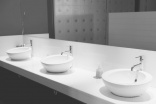Home › magazine › latest news › Falling ill at your own leisure
Falling ill - at your own leisure
23rd of November 2015A trip to a hotel or restaurant is often an expensive treat, and should therefore be a pleasurable experience. But your pleasure will quickly turn to outrage if it makes you ill. Ann Laffeaty looks at the implications of outbreaks in the leisure industry – both to the unlucky guest and to the reputation of the venue concerned.
It is irritating when one contracts a cold or a stomach bug at work. But workplace illnesses are hard to avoid since healthy employees have to mingle with their infected co-workers on a daily basis.
However a person who falls ill following a visit to a restaurant or hotel will feel justifiably outraged. Leisure activities are supposed to be enjoyed and savoured and if they make you unwell, you may blame the venue for your illness – whether this is deserved or not. And your illness may well affect your decision as to whether or not to return.
The damage to a brand’s reputation can be phenomenal following any outbreak. This spring it was announced that 193 UK diners who contracted the Norovirus planned to sue a restaurant in Exeter where they believed they had contracted the illness.
According to the lawsuit, the first positive test from a patron at the Toby Pub and Carvery came on March 29 but the restaurant remained open for business until April 7. This was despite the fact that many people reported dining at the restaurant and subsequently falling ill with vomiting and diarrhoea.
Meanwhile, more than 20 children in Washington State, US, fell ill this spring with E. coli O157:H7 following a visit to their local Milk Makers’ Fest. A petting zoo and animal exhibits formed part of the three-day attraction and 10 of the youngsters were hospitalised following the outbreak.
A family in Scotland recently won an out-of-court settlement from the exclusive Gleneagles Hotel after becoming ill with Norovirus symptoms at the five-star venue three years ago. The family claimed that the hotel had failed to act in time to deal with the outbreak.
And in May it was announced that two Californian women planned to sue a Los Angeles Mexican restaurant after claiming they were both infected with Salmonella after meeting there for lunch.
Twenty years or so ago these types of reports may have appeared in a local newspaper and then been quickly forgotten, particularly if there were no deaths or other serious repercussions following the incident. Now however, they appear on the internet where they remain indefinitely – causing untold harm to the brand in question.
The Mexican restaurant in LA had been a popular venue for 33 years and the women’s salmonella experience could have been overlooked as an isolated case. But several other customers took to Yelp and Twitter to complain of similar symptoms after eating there.
Tweets about the Gleneagles case have been cropping up at intervals over the three years since the event took place, eroding the brand’s reputation on a gradual basis. The other two cases also show up on search engines which means potential diners can read these reports and decide to avoid those particular establishments.
So there is no longer any hiding place for leisure facilities where hygiene levels are poor. This can also be seen following the introduction of the UK’s Food Hygiene Rating Scheme which was rolled out five years ago by the Food Standards Agency in partnership with local authorities. Every food outlet in the country is now inspected and given a rating from zero to five.
While displaying the rating is only compulsory in Wales, would-be diners are now able to search for a specific food outlet on the FSA website and review its rating. In fact they can even obtain a list of establishments nationwide that have five stars, four stars and so on.
This facility is of little use to the public since there are nearly a quarter of a million five-star rated establishments which means this hardly narrows down the dining choice for the average restaurant-goer. However, this facility to search by star ratings has been a gift to journalists at local, national and trade level.
When they are short of a story they now simply need to search for zero-rated restaurants and cafes (1,500 at the time of writing) or one-star establishments (currently 14,000-plus) and then highlight those they find newsworthy. These ‘name-and-shame’ news stories may then stay on the internet long after the next FSA inspection. So the damage to the brand goes on.
Worse still for low-rated outlets is the fact that today’s smartphone-savvy diners can download an FSA iPhone or android app that allows them to check their chosen restaurant’s rating before deciding on whether or not to set foot inside.
Rating schemes are an official way of grading food outlets in terms of hygiene. But the perception of cleanliness is also important – and much more difficult to quantify. Many restaurants have kitchens with viewing windows and if a diner were to spot a chef blowing his or her nose and then immediately going on to dress a plate, that diner may never return. Worse still, he or she might take to Twitter and cause that momentary slip by a chef to become an international incident.
Meanwhile in hotels there has been a recent preoccupation with placing hidden cameras in guest rooms so that the actions of the housekeeping staff can be observed. Practices such as cleaning drinking glasses with a spray cleaner or drying them with the guest’s own used washcloth have been observed in international chains and naturally, these videos have been uploaded on to YouTube for all to see.
In the face of today’s social media obsession, there is some comfort in the fact that bad reviews at least enable establishments to respond with an explanation and an apology and to react accordingly. In fact it can sometimes be worse if a diner or hotel guest votes silently to shun an establishment without the manager ever finding out why.
Hygiene products manufacturer SCA recently carried out a survey into the public’s perceptions of hotel and restaurant washrooms. Of the 8,000 people questioned Europe-wide, more than 80 per cent believed that a dirty restaurant washroom was likely to reflect the standards of the restaurant kitchen. A similar percentage believed that if a hotel washroom was dirty, then rooms would probably be dirty too.
Clean washroom vital
Around 90 per cent believed that the washroom had an important part to play in the overall impression of a restaurant or hotel. And more than 75 per cent said they would not return to an establishment where the toilets were unclean, with 25 per cent vowing to walk out if they encountered a dirty washroom in an eating place.
So hotels and restaurants need to be seen to be clean. Establishments with viewing windows on to the kitchens need to ensure that faultless cleaning and hygiene systems are in place and that kitchen staff are never allowed to put a foot wrong.
Most restaurant and hotel guests are there to enjoy themselves and are not usually on the lookout for evidence of poor hygiene. But a diner sitting at a restaurant or hotel table is basically a captive audience for several hours, and during that time they will observe the habits of the waiting staff, the cleanliness of their surroundings and any hygiene slip-ups in the kitchen.
On the other hand, where the surroundings are spotlessly clean and the staff are seen to be well groomed and practising good personal hygiene, the diner will be impressed and reassured.
When someone falls ill following a visit to a hotel or restaurant, it is often hard to tell whether that venue is actually to blame. If the illness is an isolated case the person in question might have contracted it before or after their hotel or restaurant visit.
But if the victim has perceived any lapses in hygiene on the part of the hotel staff they are much more likely to blame the venue – and to bad-mouth that venue to others, whether verbally or via the internet.
Uniformed waiting staff in restaurants who work quickly and efficiently to clean tables will create a good impression. Similarly, smartly-dressed housekeeping employees with well-ordered trolleys in a hotel will create an impression of professionalism.
Toilets in both restaurants and hotels should be spotless with visible cleaning schedules on display. There should be a number to call for when a cleaning team is required, and an attendant in the washroom will provide further reassurance that cleaning and hygiene is constantly being considered.
There has been a growing preoccupation with hygiene over recent years, with antibacterial wipes and sprays becoming increasingly popular. Today’s insistence on high levels of hygiene – coupled with the ease with which images and videos can capture any hygiene lapses – means that hygiene in the leisure industry has never been more important. So it is up to the front-line cleaning staff to ensure that high standards are consistently met.










